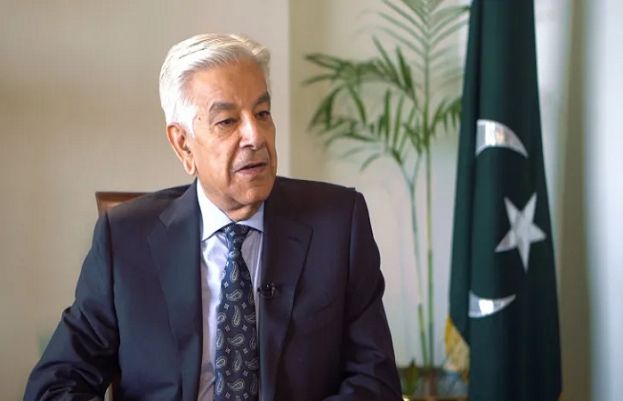Defence Minister Khawaja Asif has stated that while it is too early to discuss the possibility of other countries joining the Pakistan-Saudi Arabia security pact, “the door has not been closed” on such a prospect. “It is premature to talk about other nations joining the agreement, but the door remains open,” Asif said in an interview. Islamabad and Riyadh recently formalized a landmark Strategic Mutual Defence Agreement, pledging that any aggression against one country will be treated as aggression against both. The pact was signed during Prime Minister Shehbaz Sharif’s state visit to Riyadh on September 17, where he was received by Crown Prince and Prime Minister Mohammed bin Salman at Al-Yamamah Palace. Asif emphasized that any attack on either Pakistan or Saudi Arabia will be considered an attack on both nations, and the two countries will respond jointly. “If either Pakistan or Saudi Arabia faces aggression from anywhere, it will be treated as an attack on both, and we will respond together,” he added. Meanwhile, JUI-F Chief Maulana Fazlur Rehman welcomed the Pak-Saudi agreement, noting that both countries have the capacity to lead the Islamic world. He described the pact as a first step towards strengthening the Islamic bloc and said it should be supported rather than discouraged. “When the question of the rights of the Muslims of Palestine, Kashmir, and Burma arose, we had said that Saudi Arabia and Pakistan had the capacity to lead the Islamic world,” said Fazl while addressing a rally in Karachi. Federal Information Minister Atta Tarar, speaking to reporters in London, said the agreement reflects the success of Pakistan’s recent foreign policy. “For the past one and a half years, our foreign policy has been progressing successfully,” Tarar added. It is to be noted here that the defence agreement between the two countries was signed days after Israel launched a strike against Qatar, targeting Hamas leaders in Doha, a move that sparked outrage among Muslim nations and world leaders alike. Experts have described the agreement as a “historic and unprecedented development”, elevating bilateral ties into a formal security commitment. They noted that while Pakistan has previously joined various defence pacts, this accord stands out for its binding clause that treats any aggression against either country as an attack on both. The move, they argued, not only strengthens Pakistan–Saudi relations but also carries wider significance for South Asia and the Islamic world, positioning Pakistan as the most capable Muslim power to safeguard regional stability. Analysts linked the timing of the agreement to recent regional turbulence, including Israeli strikes, the Doha summit, and heightened concerns across the Arab world about sovereignty and unilateral aggression. They said the pact underscores Saudi Arabia’s trust in Pakistan as its most reliable partner at a moment of escalating threats.
Other nations still welcome to join Pak-Saudi defence pact: Khawaja Asif

